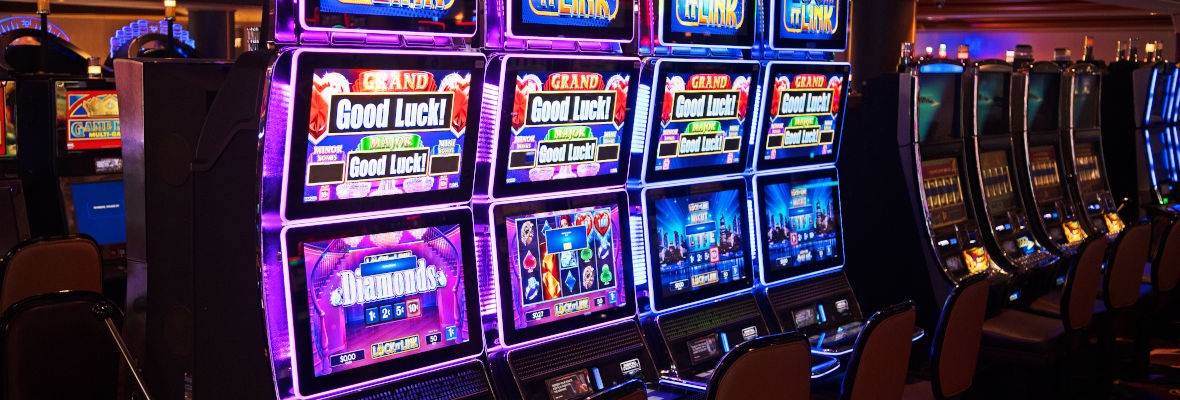Gambling games have long captured the interest of people around the world, becoming an important part of both entertainment and tradition. From the glimmering lights of Las Vegas to the engaging experience of internet gambling, these games evoke enthusiasm, risk, and sometimes even a sense of remembrance. They are more than just entertainments; they have woven themselves into the tapestry of our lives, influencing various aspects from cinema and music to style and writing.
The allure of casino games goes beyond the wagering aspect, tapping into broader themes of serendipity, risk, and human behavior. As players assemble around a gaming table or rotate the roulette wheel, they engage in an ancient ritual that resonates with our collective desire for thrill and instability. https://ok365vn.dev/ This captivation has led to the rise of numerous references in films, tracks, and electronic games, showcasing how intensely entrenched these activities are in pop culture. Whether it is the pressure of a traditional heist movie or the vibrant nightlife portrayed in videos, casino games have carved out a substantial role that reflects our relationship with reward.
Social Significance of Casino Games
Gambling games have played a pivotal role in cultural aspects throughout the ages. Stemming from ancient societies, forms of chance were often linked to ceremonies or gatherings. For instance, early iterations of gambling can be traced back to historic China and the Roman Empire, where die games and wagering on results were common pastimes. These games not only functioned as entertainment but also as methods of social interaction, facilitating connections among people within societies.
As cultures evolved, so did the complexity and organization of casino games. The creation of formal casinos in the 17th century, particularly in the Italian region, marked a significant shift in how games were viewed and structured. With specific spaces for gaming, the casino became a community center where patrons from various backgrounds convened. This evolution contributed to the validation of gambling, transforming it from a mere pastime into an organized industry that shaped economy and regulations.

The effect of casino activities on mainstream culture cannot be understated. As they were popularized in books and film, games such as Texas Hold’em and 21 became icons of chance, chance, and tactics. Famous figures and narratives have developed around these games, reflecting societal attitudes towards fortune, wealth, and vice. This interest with casino activities has infiltrated various forms of media, solidifying their place in the collective consciousness and linking them to wider cultural stories throughout history.
Representation of Gambling Games in Media
Gambling games have long been a popular topic in various forms of media, reflecting both the excitement and nuances of gambling culture. Movies such as Ocean’s Eleven and Casino Royal portray figures who navigate high-stakes environments, showcasing not only the appeal of the casino atmosphere but also the strategies and decisions that come with playing popular games like Texas Hold’em and 21. These films often dramatize the excitement of winning and the potential repercussions of losing, encapsulating the dangers involved in gambling.
TV programs have also explored the world of casino games, often integrating them into the narrative as a context for character arcs and conflict. Shows like Vegas depict the stories of casino workers and casino-goers, highlighting the lively, often tumultuous energy of the gaming floor. Reality shows featuring intense gambling competitions further emphasize the appeal of gambling activities, drawing viewers into the excitement and tactics involved in each session. Through these portrayals, media not only engages but also prompts conversations about fortune, expertise, and the nature of randomness.
Video games have increasingly incorporated casino games into their development, allowing players to recreate the experience of betting without financial risk. Games within the landscape of online gaming often include online slot machines, online poker, and other casino favorites, creating an interactive experience that mirrors real-life gameplay. These digital representations make casino games accessible to a global audience, appealing to both players who indulge and those who enjoy the thrill of virtual experiences. As a consequence, the representation of gambling activities in media continues to shape public perception and cultural relevance, highlighting their function in society and social context.
Impact of Casino Games on Communities
Casino games have a meaningful effect on society, affecting various facets of culture and interpersonal behavior. They often serve as a venue for community engagement, where people gather to experience a common experience. Casino trips with friends or visits to casinos become group events that build connections and create shared moments. This collective aspect boosts the entertainment value of casino games, making them a popular choice for festivities and recreational pursuits. CEO OK365
Additionally, casino games have been portrayed in countless movies, television shows, and written works, shaping views and attitudes towards gambling and gaming. Icons like James Bond competing in baccarat or the high-stakes poker scenes in films have embedded these games in the shared imagination. This representation often glamorizes the lifestyle associated with gambling, attracting new players and impacting trends in both fashion and behavior. These representations can spark curiosity and lead to a deeper exploration of the nuances of gaming.
Nonetheless, there are also adverse implications linked to the popularity of gambling activities. The allure of quick monetary gain can lead to problem gambling and economic troubles for some individuals. Society must contend with these issues, advocating for responsible gambling and education of the risks involved. Finding a balance between the entertainment value of gambling activities with the risks is vital to ensure that they continue to be a positive aspect of our societal fabric.